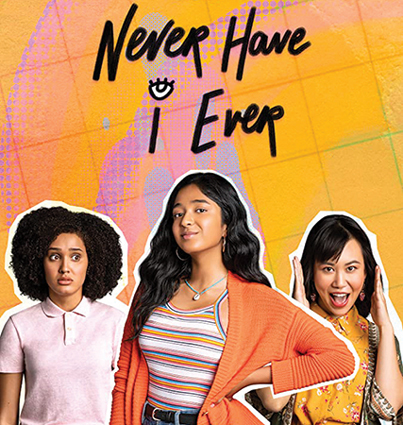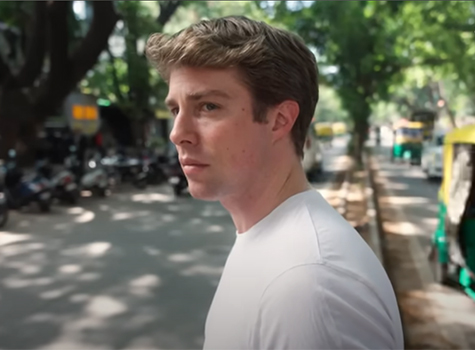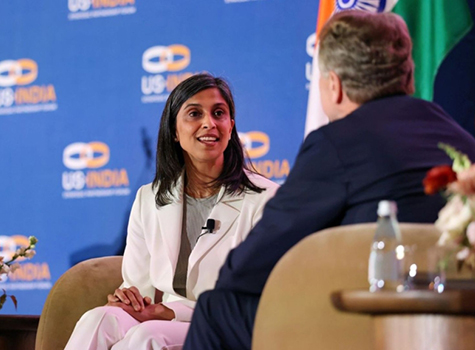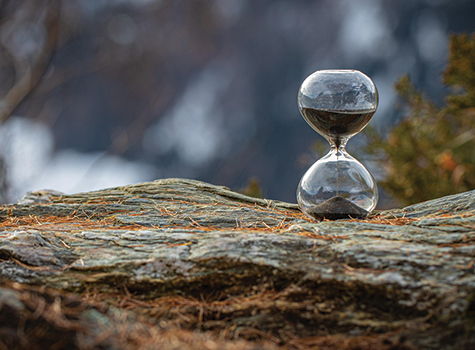So I’ll admit that I’m a sucker for High School rom-coms. I grew up worshiping John Hughes and his undeniable understanding of teen angst (at least until he wrote the Home Alone films). My So Called Life with Claire Danes & Jared Leto is still a great TV show that ended way too soon. I thought that Netflix was pretty much done with high school shows after they cancelled Everything Sucks! after only 1 season (ironically inspired by My So Called Life but with a few twists) but I guess they decided to try this concept again with Never Have I Ever.

The series was created by Mindy Kaling and Lang Fisher, partially based on Kaling’s own childhood. I’m also a fan of Kaling ever since her breakthrough work on The Mindy Project, The Office, and recent films, Oceans 8 and Late Night. Hearing that she was involved got me interested and so I sat down to watch all 10 episodes on Netflix… and didn’t get up until it was over almost five hours later. It made me laugh, cry, and occasionally roll my eyes but it was worth it.
Never Have I Ever is about 15 year-old Tamil Indian-American teen Devi Vishwakumar (newcomer Maitreyi Ramakrishnan) and her struggles during her sophomore year after the tragic death of her father (played in flashbacks by Sendhil Ramamurthy). She lives with her mother Nalini (Poorna Jagannathan) and cousin Kamala (Richa Moorjani) in Southern California. Along with Devi’s two best friends Fabiola Torres (Lee Rodriguez) and Eleanor Wong (Ramona Young), they decide they want to break free from being social outcasts at school. Along the way Devi struggles with her grief, Indian identity, school life, her family, her crush on popular jock Paxton (Darren Barnet), and her rivalry with fellow intellectual Ben (Jaren Lewison). It seems like a lot for one girl to go through during the single year of high school, and you’re right.
Devi wants a boyfriend. She wants to get invited to parties where there’s a lot of drugs and alcohol — not so she can get wasted, but because she wants the opportunity to say no. She wants to go to Princeton. She also wants to not be embarrassed by her mother and cousin because they’re just “so Indian”. In actuality, Devi’s Indianness is part of what makes the show so endearing. Being Indian affects almost every aspect of Devi’s life. It fuels her mother’s expectations, it’s why Kamala lives in their house, it means Devi has to attend long, boring Indian holiday celebrations she’d rather skip, and it shows the stark contrast of how Devi and her mother deal with grief.
The only episode that made me both laugh and kind of cringe at simultaneously is the one where Devi and her family celebrate Ganesh Puja. As much as the show tried to break South Asian stereotypes, I felt that this one delved right back into a few without even apologizing for it. There’s the typical over-protective conservative parents, talk of arranged marriages with wealthy matches, patronizing aunties who are all about family gossip, and Indian-American kids who come to Hindu celebrations out of obligation rather than enjoyment.
One particular sore point was the talk about one woman who is seen eating alone. Apparently according to the aunties, she’s been ostracized by the Indian community because she married an American-Muslim against her parents’ wishes, only to end up getting a divorce anyways. Kamala, who’s also recently been set up in an arranged marriage, finds herself in a conversation with the woman. The conversation takes a left turn when instead of a ‘you should live your life on your own terms’ speech, Kamala is told that she ought to do what her family wants in order to sidestep of lifetime of being socially boycotted. I was more floored by the apparent Islamaphobia rather than that arranged marriage is just “what Indian women do”. Considering the current political climate between Pakistan and India I felt this was a bit insensitive.
Regardless, the overall show gives a lot of depth to the entire main cast. The show draws you into the lives of Devi and her best friends Eleanor and Fabiola – who have interesting storylines of their own. The other two supporting characters – the school heart throb and Devi’s crush, Paxton along with her arch nemesis, the lonely nerd Ben – are extremely watchable as well. An odd, yet surprisingly welcome choice was to have the show narrated (mostly) by tennis legend John McEnroe who turns out was a big hero for Devi’s father. The choice to have a 60+ year-old sports celebrity talk about a 15 year-old girl’s insane life could have gone horribly wrong, but somehow it works. McEnroe’s narration is funny, self-deprecating, unapologetically weird, and I loved every moment of it.
The show does have some twists on the usual high school rom-com formula, and despite the above flaws is very enjoyable to watch. The beauty is that while the show does centralize on Indian-American society, it is extremely accessible and enjoyable for everyone. I was especially drawn in to Devi’s struggles after losing her father (my mother passed away when I was also 15) and every flashback scene with Sendhil Ramamurthy’s smiling face just seemed to make the whole world light up with him.
You may also laugh, cry, and other things in response to major parts of this first season, but I think if we watch this with a calm attitude like Pandit Raj (CoolHinDude.com is a totally cute website name, btw) then I think we can all find the enjoyment we need during this stressful time.
Never Have I Ever, Season 1 is now streaming on Netflix.
———-
Jennifer Allen works at Saathee and is also a Podcaster, Blogger, Photographer, Graphic Artist, Martial Arts Practitioner, and all around Pop Culture Geek.



